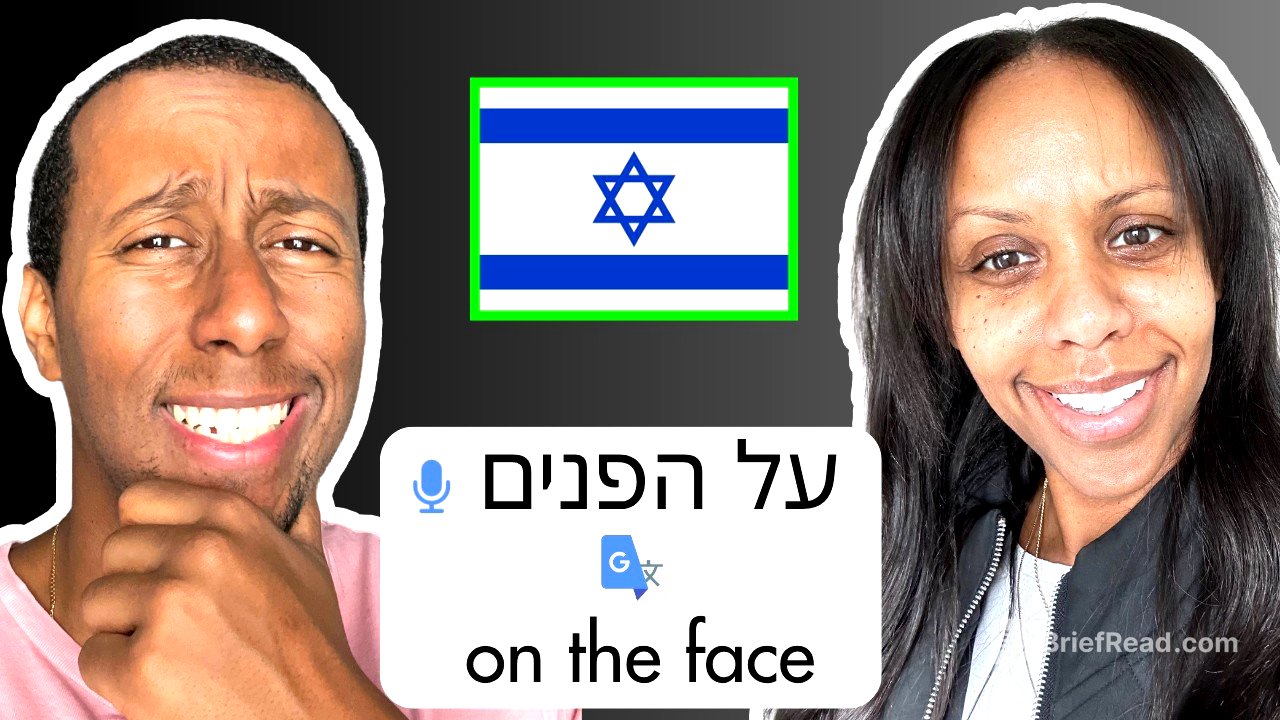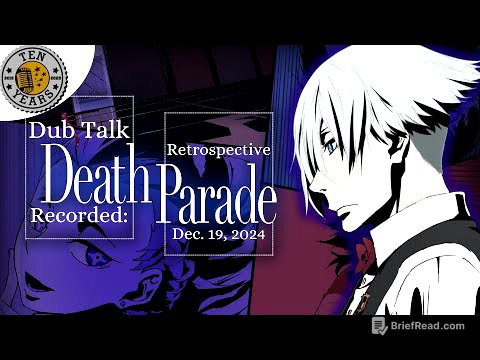TLDR;
This video explores modern Hebrew slang with the help of a native Israeli speaker. It covers various slang terms, providing literal translations, actual meanings, and example sentences to illustrate their usage. The video highlights the nuances of Hebrew slang, where the literal meaning of a word can differ significantly from its colloquial use.
- Literal translations often don't match actual usage.
- Hebrew slang incorporates English words with a Hebrew twist.
- Some slang terms are used very commonly, while others are more advanced.
Intro [0:00]
Yoel introduces his sister, Tali, who is a native Israeli, to explain Hebrew slang. Tali grew up in Israel and served in the military, making her well-versed in the language and culture. She will provide insights into the literal definitions and actual meanings of various Hebrew slang terms.
Al Hapnim [0:18]
"Al Hapanim" literally translates to "on the face," but it actually means "horrible" or "not good." Tali provides an example sentence: "The party was on the face," meaning the party was not enjoyable. This illustrates how the literal translation doesn't convey the actual meaning.
Gag [0:48]
"Gag" literally means "roof," but it is used to mean "maximum." For example, "I'm going to drink two drinks maximum" can be said as "I'm going to drink two drinks gag." The connection to "ceiling" or "maximum" makes the slang usage more understandable.
Meh Pitome [1:06]
"Meh Pitom" literally translates to "what surprise." It is used to express disbelief or disagreement, similar to saying "what are you talking about?" or "no way." The term "pitom" implies suddenness or surprise, but in this context, it conveys skepticism.
Habel Al Hazman [1:44]
"Havel al Hazman" translates to "waste of time," but it's used sarcastically to mean the opposite, like "that was so good" or "that was fun." It's a positive expression used to describe something enjoyable or worthwhile, despite its literal meaning.
Sof Hadrach [2:22]
"Sof Haderech" literally means "end of the road" or "end of the journey," but it can also mean "really good," especially when referring to a time or experience. The term "sof" means "finally," adding emphasis to the positive sentiment.
Lehagdil Rosh [2:57]
"Lehagdil Rosh" means "to expand your head." It describes someone who thinks outside the box, is smart, or goes the extra mile. It can be used to describe an overachieving employee or someone who is innovative and resourceful.
Bektana [3:38]
"Bektana" is derived from the word "katan," which means "small." "Bektana" means "it's not a big deal" or "no biggie." This slang term is used to downplay the significance of something.
Dogri [4:16]
"Dogri" means "honestly." The literal translation is very close to the slang meaning, making it a straightforward term to understand. It's used to emphasize sincerity or truthfulness in a statement.
Noo [4:40]
"Nu" doesn't have a literal translation but is used in many contexts, similar to "yalla." It can mean "hurry up" or can be used as a general interjection. Israelis use it frequently, making it a versatile slang term.
Chi Besert [5:05]
"Chi Beseret" translates to "living in a movie." It describes someone who is delusional or living in a fantasy. This term is used to criticize someone who has an unrealistic view of reality.









